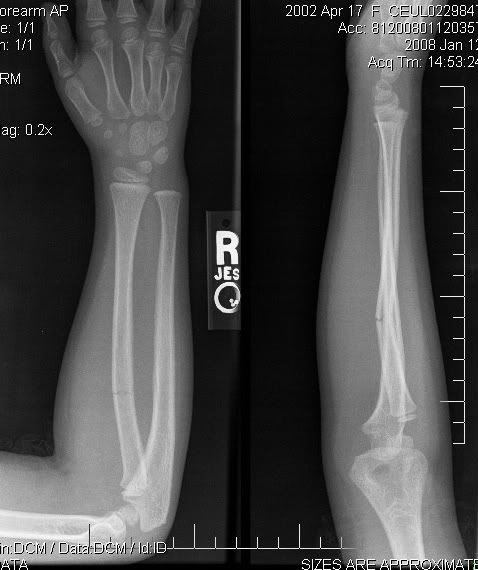Part Two: Schedules
This is part two for a friend of mine who is considering homeschooling. It's always helpful to read someone else's "week in the life" so that you can get a ideas for your own.
Let me start by saying we are not very scheduled yet. Our oldest just turned 7 and doesn't need an immense amount of educational structure. For us, she is just starting the "Love of Learning" phase so our scheduling isn't rigorous. The time scheduled is the important part, not the content. For instance, we will schedule the first two hours after the breakfast dishes are done to learn. My seven year old steers most of what we do: Math game? Story of the World? Music? Gardening? Science? The other children have input and we do it together. Most often, the 3 and 5 year old will drop off the project first and the 7 year old will see it through.
In the fall, we will continue on Thursdays (9 a.m. to 2 p.m.) with the ASLAND Commonwealth and Mondays with our Music classes at Children's Music Academy (5 and 7 year old). Since Monday and Thursday are mostly scheduled, it leaves Tuesday, Wednesday and Friday for choice of activities.
Here is a sample of our Fall schedule (our summer varies because we camp often):
DAILY: up by 7 a.m., breakfast by 8 a.m., dishes after breakfast: the girls (ages 3, 5 and 7) take turns cleaning off the table, sweeping the floor and helping load the dishwasher)
8:30 a.m. to 10:30 a.m.--organized play/study time We do our religious studies first, then we draw from a variety of Montessori activities, math games, Story of the World, Travelling Friend/Geography, Writing Letters to Family and Friends or writing stories, Science experiments, etc. We sit down on Sunday evening and make out a schedule for the week. It is a mutable schedule; if something we're doing just isn't holding their attention, we find something else to do. The object is to INSPIRE.
10:30a.m. to 11:30 a.m. is free time play; around 11:30 a.m., the girls are responsible for picking up any mess made that morning in preparation for mealtime. Lunch is eaten together at the table, but often the girls make their own lunch and take much pride in it. After, they are responsible for cleaning up and putting their own dishes in the dishwasher (I empty it while they are cleaning up and preparing lunch).
One of the principles of the TJed education is that in Core Phase (approx age 0-8 +/- 80 yrs) you are teaching your children right/wrong, true/false and to WORK. Life is work. Survival is work. Every member of the house participates. My 18 month old helps with the laundry. She even puts her bowl in the dishwasher. :) We are a family unit.
After lunch, I put the 18 month old to bed. The older three play....and play...and play. The TV does NOT go on, unless it's a special occasion--at most three movies in a month. We started out an hour a day when I was pregnant and exhausted, then we went to an hour every other day and now we just don't turn it on before the kids go to bed, especially when the weather is nice. The kids can color, create, explore. My seven year old created a picture library--the three older children colored pictures and posted them on the glass doors that lead to the deck. Each person in the family could check out one picture for a day, then trade it for another to make their rooms more beautiful. She also made books and sold them to her Papa for $1 each. That's just the tip of the iceberg in imagination and innovation.
I try to study during the playtime hours, but I generally get little done with little ones. The object for me is to show the children that I study, to be a good example. Right now I am studying the book "The Making of America" and The Constitution of the United States of America. I'm preparing for Constitution Day and filling in the giant gaps in my education.
At about 4 p.m. I start dinner preparation. We have a large family, so the dishwasher is usually emptied (2 loads a day) and the floor swept again. I warn the children to start picking up their messes and anyone that wants to help cook can do so after the messes are clean.
After dinner together, we clean up and decide on an activity. I learned from the TJed book that I should be reading more with the kids as a family (more than just a couple kids books a day), so we're starting to incorporate at least a half hour of reading the classics a night and we'll increase that this summer. We just finished an abridged version of The Secret Garden and are starting on The Wizard of Oz. All of the kids sit and listen (though the 18 mo old isn't very attentive). They are not "picture books" but the kids love them! After that, we find a game to play or, if they made a particularly large mess that day, I have them finish up cleaning. Before bed, we write in our journal what we learned that day.
Our schedule is rather simple, so it works. It has lots of variations, though. Some days we go to the zoo instead of the structured time; when we do, we take a zoo report sheet and the kids pick an animal to draw and write something about the animal. Or we might go the museum and the same general idea applies.
We take field trips OFTEN. It helps to inspire the kids to see things in such a grand display. Our favorites are:
Museum of Natural History, Zoo, Botanic Gardens, smaller History Museums, nature trips to the Mountains, walks around the neighborhood, free concert performances, ...
Our schedule evolves. Be open to that. Scheduling time is important, so stick to that, but the beauty of homeschooling is that you can take opportunities when they arise. Yesterday, we visitied the Cheyenne Botanic Gardens because our schedule isn't tied down.
We thank God every day that we have the freedom to choose for ourselves and our family.
My Homeschooling Help and Hints:
- I would caution, however, that as a new homeschooler it's easy to get caught in the trap of wanting to do everything. We were involved in a co-op for a couple years that kept us so busy we had little time for playtime and family. You have to work hard at a balance; if you don't participate in any activities with other families, you feel isolated; but if you try to do too much, you become frazzled and the family unit starts to break down.
- This one is hard to hear for new homeschoolers: get rid of 90% of the toys. Just get rid of them. If your children are to be successful at keeping their personal belongings cleaned up, they need to have little to clean. If they have too many toys, they also lose the sense of pride in their things. Ask youself if you are providing the things for their benefit, or your own. If they are begging you for the latest thing in Hannah Montana or Transformers, turn of the TV for a month. Find out what is important when the constant advertising isn't bombarding your children.
- Limit the video games severely. How about 1 day per week for a few hours...for example, let the kids play on Friday night from 7 p.m. until whenever they pass out and that's it for the week. DO NOT turn on the TV. Simplicity.
- Don't underestimate what playtime gives your children. BOREDOM is good if there aren't 100 toys, video games and TV to choose from. Boredom leads to imagination and innovation.















1 comments:
You can point her here too, I know I did a post on why and how we HS, but I can't find it at the moment.
http://highlandshomeschool.homeschooljournal.net/2008/06/25/hs-qs/
http://highlandshomeschool.homeschooljournal.net/2009/03/01/10-things-i-use-for-school-besides-k12-curriculum/
Post a Comment